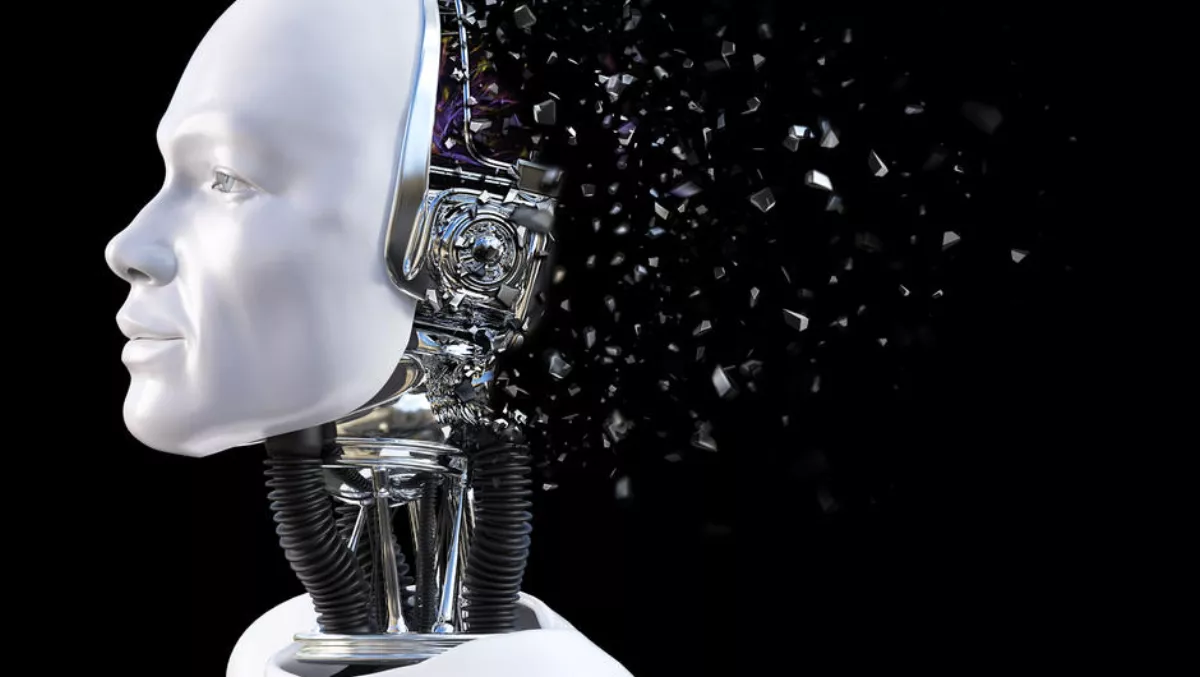
APJ business leaders can't agree on future of human-machine partnerships
We are moving into the next era of human-machine partnerships – but, with a divided vision of the future.
That's a warning from Dell Technologies which recently commissioned a Vanson Bourne study that surveyed 3800 business leaders from medium to large enterprises across 17 countries.
The results were divided: 58% of the business leaders surveyed from Asia Pacific - Japan (APJ) forecast that automated systems will free up their time, while the other 42% believe otherwise.
Similarly, 48% believe they'll have more job satisfaction in the future by offloading tasks to machines, while 52% disagree.
More APJ leaders predict this will impact their work and business, compared to their global counterparts, yet the research suggests APJ businesses are less prepared and more concerned about how to compete.
Dell Technologies' chief marketing officer Jeremy Burton says it's easy to understand why the business community is so polarised.
"There tend to be two extreme perspectives about the future: the anxiety-driven issue of human obsolescence or the optimistic view that technology will solve our greatest social problems.
He adds, "These differing viewpoints could make it difficult for organisations to prepare for a future that's in flux and would certainly hamper leaders' efforts to push through necessary change."
Moreover, given the promise of monumental change - fuelled by exponentially increasing data and the applications, processing power and connectivity to harness it - 61% speculate that schools will need to teach how to learn rather than what to learn to prepare students for jobs that don't yet exist.
Barriers to breakMany businesses aren't moving fast enough or going deep enough to overcome common barriers to operating as a successful digital business, the report finds.
Only 24% of businesses believe they are leading the way, ingraining digital in all they do. 44% percent don't know whether they'll be able to compete over the next decade, and the majority (63%) of businesses are struggling to keep-up with the pace of change.
Main barriers to becoming a successful digital business in 2030 and beyond in APJ are:
- Lack of a digital vision and strategy: 66%
- Lack of workforce readiness: 63%
- Technology constraints: 50%
- Time and money constraints: 37%
- Law and regulations: 20%
Additionally, president of Dell EMC APJ enterprise, David Webster, says that business leader will need to confront cultural barriers too.
"Realising the future opportunity that human-machine partnerships will bring is as much about people as it is about technology.
"Organisations will have to build the right culture to collaborate, embrace change, and align on how best to prepare and succeed.
Unified by the need to transformAlthough leaders are divided in their view of the future and facing barriers to change, they're united in the need to transform.
In fact, the report finds that the vast majority of businesses believe they'll be well on their way to transforming within five years, despite the challenges they face.
Likely to achieve within five years:
- Have effective cybersecurity defences in place: 93%
- Deliver their product offering as a service: 90%
- Complete their transition to a software-defined business: 89%
- R-D will drive their organisation forward: 83%
- Delivering hyper-connected customer experiences with virtual reality (VR): 82%
- Using AI to pre-empt customer demands: 82%
Burton adds, "We're entering an era of monumental change. Although business leaders harbour contrasting views of the future, they share common ground on the need to transform. Based on the many conversations I have with customers, I believe we're reaching a pivotal moment in time.
"Businesses can either grasp the mantle, transform their IT, workforce and security and play a defining role in the future or be left behind."
President of Dell EMC APJ Commercial Amit Midha calls APJ the epicenter for innovation in AI and IoT.
As a result, explains Midha, there is significant expectation riding on the positive impact emerging technology can bring – particularly to the region's cities
"Despite the lack of readiness as perceived by leaders in the region, technology and innovation leadership will be integral to overcoming the transformation challenges ahead, with human-machine partnerships set to revolutionise how we live, work and play in urban areas.

